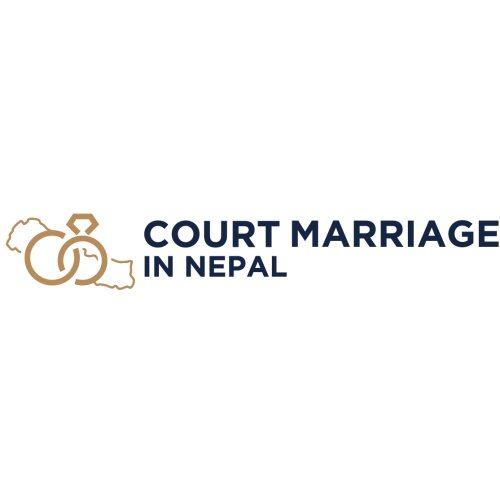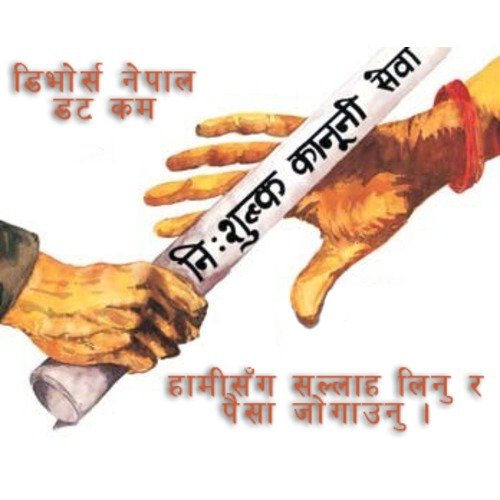Best Lawyers in Pokhara
Share your needs with us, get contacted by law firms.
Free. Takes 2 min.
List of the best lawyers in Pokhara, Nepal
About Hiring a Lawyer in Pokhara, Nepal
Hiring a lawyer in Pokhara, Nepal involves several steps to ensure you get the best legal support for your needs. Firstly, identify the area of law your case pertains to, as attorneys typically specialize in fields such as family law, criminal law, property law, or business law. Once you've pinpointed your legal needs, you can begin searching for a lawyer by consulting the bar association or seeking referrals from friends or colleagues. It's important to research potential lawyers, including their experience, reputation, and fees. Finally, schedule an initial consultation to discuss your case and determine if the lawyer is the right fit for handling your matter.
Why You May Need a Lawyer
There are several situations in Pokhara where individuals may require legal assistance. Common scenarios include:
- Property disputes or real estate transactions
- Family matters such as divorce, child custody, or inheritance issues
- Criminal defense for those accused of committing a crime
- Business disputes or contract issues
- Immigration and visa applications
- Workplace disputes, including wrongful termination or harassment
Lawyers provide essential guidance and representation to navigate these and other legal challenges effectively.
Local Laws Overview
Nepalese law is a mix of statute, case law, and customary law. In Pokhara, as part of Nepal, understanding some fundamental aspects of local law can be beneficial:
- Property Law: Governed by the Civil Code, which outlines property rights, transfer procedures, and dispute resolutions.
- Family Law: Also part of the Civil Code, covering marriage, divorce, child custody, and adoption.
- Criminal Law: Primarily follows the Muluki Criminal Code, addressing offenses, penalties, and trial procedures.
- Civil Procedures: Guided by the Civil Procedure Code, which dictates the process for civil litigation.
- Business Regulations: Include laws related to business registration, taxation, and labor.
Frequently Asked Questions
What should I consider when choosing a lawyer in Pokhara?
Focus on their expertise in relevant legal areas, experience level, reputation, and your comfort level with them during consultations.
How can I verify a lawyer's credentials in Nepal?
Check with the Nepal Bar Association or the local bar council for their licensure and any disciplinary records.
What are typical charges for hiring a lawyer?
Fees vary based on the lawyer's experience, the complexity of the case, and whether they charge hourly rates or flat fees.
Do Nepali lawyers offer pro bono services?
Some lawyers and legal aid organizations provide free or reduced-cost services to those who qualify based on income levels.
What is the procedure for filing a legal complaint in Pokhara?
File a complaint at the local district court or appropriate legal authority. It's advisable to have a lawyer guide you through the process.
How long does resolving a legal matter usually take in Nepal?
This depends on the case complexity, court backlog, and legal procedures. Some cases resolve in months, while others may take years.
Can I represent myself in court in Nepal?
Yes, self-representation is allowed, but having a lawyer can significantly improve the chances of a favorable outcome.
Are legal documents required to be in Nepali?
Yes, legal documents should be written in Nepali to be recognized by the courts.
How can I appeal a court decision?
You may file an appeal with a higher court within a specified period, usually 30 days from the judgment date, but consult a lawyer for detailed guidance.
What should I do if I cannot afford a lawyer?
Seek assistance from legal aid organizations or inquire about pro bono services offered by law firms or through the bar association.
Additional Resources
For further assistance, consider consulting the following resources:
- Supreme Court of Nepal - For case laws and judiciary information.
- Nepal Bar Association for referrals and lawyer directories.
- Local legal aid organizations that can provide support for those unable to afford private counsel.
- Women's rights organizations for cases related to family law or gender-based violence.
Next Steps
If you need legal assistance in Pokhara, follow these steps:
- Define the nature of your legal issue to identify the right type of lawyer for your situation.
- Conduct research or seek recommendations to build a list of potential lawyers.
- Contact the lawyers to discuss initial consultations and inquire about their experience, fees, and approach.
- Select a lawyer who meets your needs and feels right for your case, then discuss and agree upon their retainer and terms.
- Prepare all relevant documents and information related to your legal issue before your first formal meeting.
Lawzana helps you find the best lawyers and law firms in Pokhara through a curated and pre-screened list of qualified legal professionals. Our platform offers rankings and detailed profiles of attorneys and law firms, allowing you to compare based on practice areas, experience, and client feedback.
Each profile includes a description of the firm's areas of practice, client reviews, team members and partners, year of establishment, spoken languages, office locations, contact information, social media presence, and any published articles or resources. Most firms on our platform speak English and are experienced in both local and international legal matters.
Get a quote from top-rated law firms in Pokhara, Nepal — quickly, securely, and without unnecessary hassle.
Disclaimer:
The information provided on this page is for general informational purposes only and does not constitute legal advice. While we strive to ensure the accuracy and relevance of the content, legal information may change over time, and interpretations of the law can vary. You should always consult with a qualified legal professional for advice specific to your situation.
We disclaim all liability for actions taken or not taken based on the content of this page. If you believe any information is incorrect or outdated, please contact us, and we will review and update it where appropriate.
Refine your search by selecting a practice area.




























